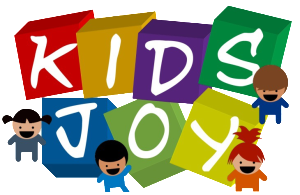I came across this poem by William Martin, which really made me reevaluate my parenting.

In the busyness of modern life, we emphasize productivity and high achievement. And somewhere we tend to put this value on our children almost right from the time they are born.
Whether celebrating physical milestones such as turning over or pushing them to ride a cycle because the neighbour’s child who’s younger than them already can, or proudly talking about how they know all their alphabets and numbers, we are unconsciously teaching them that achievements are what makes them valuable.
But at the end of the day, what’s the point of producing human beings who are high achievers but have no sense of empathy.
As we have seen in this generation, pushing people to strive, and keep pushing their limits, has led to so many issues such as stress, anxiety, depression, high blood pressure, insomnia, eating disorders, etc. We see this all around us, but because we are stuck in the rat race, we continue to think in that way and perpetuate the very same cycle in our children. But somewhere it requires, allowing our thinking and values to be shaken and looking at life from a new perspective that William Martin has so beautifully described in his poem.
Here are some ways, we can help raise wholesome human beings:
1. Intentionally create space for conversation:
This can just be around the dinner table, or lying down and chatting with them before they sleep. Ask them questions such as ‘Rose, Bud, Thorn’ (Rose – What was something you liked about your day, Bud – what are you looking forward to, tomorrow? Thorn – What was something you didn’t like about your day?”) or “What made you sad/mad/ glad today?” (Read the ‘9 most important minutes of your child’s day‘, for more ideas on conversation starters.)

Giving children an opportunity to talk, helps them process their feelings and learn to evaluate each day, thinking about what they are doing, rather than just letting every day pass in a rush. It also gives you an intentional time with your child, where you can ask them questions, that can help them develop empathy, such as “How do you think Rahul felt when Kevin called him ‘fatso’?”
2. Take them out in nature:
Nature is something that really brings perspective to life. Just taking a walk around, looking at trees, playing in the mud, making flower bouquets, observing ants, etc. help children to appreciate what’s around them, and really enjoy this beautiful world we live in. Here are some nature activities you can do with your child.

3. Involve them in house chores:
Getting your child involved in house work helps them develop responsibility as well as teaches them values such as hard work, perseverance, and not considering any task too low for them. Children who help in house when they are young, will tend to be more empathetic, respectful and better team players. Read ‘How to get your child to be more involved at home’.

4. Allow your child to be bored:
In our desire to give our child the best, we tend to pack their lives with one class after the other: Monday – Swimming, Tuesday – Football, Wednesday – Taekwando, Thursday – Art Class, Friday – Coding, Weekend – Life Skills Coaching. We may think we are giving our child every opportunity possible and developing all their skills, but in reality, we are just ensuring that they continue in the rat race.

It’s so important for children to have times where they are just not doing anything – where they are content being by themselves and learning to entertain themselves. You will be surprised to find that once they overcome their initial boredom, they will use this time to do things they really enjoy and their creativity will come out.
By helping your child engage with the ordinary, you will teach them to appreciate the small things in life, which will greatly help them be nicer human beings and be far better equipped to tackle the pressures and stress of life as they grow older.


Recent Comments